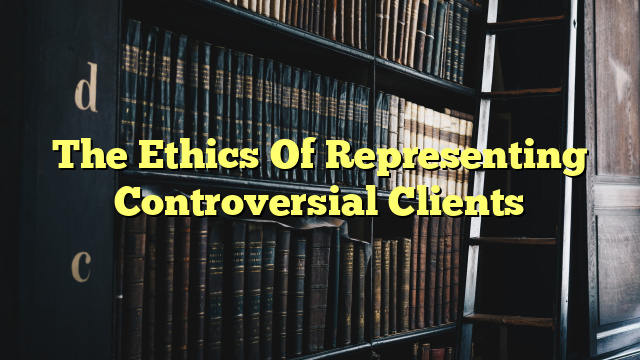Table of Contents
- What is a lawyer’s ethical duty to represent the unpopular client?
- Would it be unethical for an attorney to refuse to represent such a client?
- What are the ethical issues in pro bono representation?
- What is an example of a legal ethical dilemma?
What is a lawyer’s ethical duty to represent the unpopular client?
According to Model Rules of Professional Conduct, an attorney must represent the client zealously and diligently, regardless of the client’s beliefs or actions. This means that attorneys must take reasonable steps to ensure that their client’s rights are being protected, even if the client does not agree with them. In addition, attorneys must also carry out their duties in keeping with the ethical rules of their profession and remain mindful of the law and their ethical obligations.
Would it be unethical for an attorney to refuse to represent such a client?
It depends on the circumstances and the attorney’s ethical obligations. According to Model Rules of Professional Conduct, attorneys have a duty to represent unpopular clients, provided that the representation does not interfere with their professional judgment. An attorney may refuse to accept a case if he or she believes that the case would be overly burdensome or if it violates their own moral or ethical beliefs. However, the attorney must still make reasonable efforts to secure alternative counsel to represent the client.
What are the ethical issues in pro bono representation?
Pro bono representation involves providing legal services to individuals or organizations that have limited or no access to legal services. In pro bono representation, attorneys are expected to adhere to their professional and ethical obligations. The primary ethical issue in pro bono representation is ensuring that the interests of the client are being served in the best possible manner. This includes providing effective and quality legal services, while taking into consideration the financial constraints of the client.
What is an example of a legal ethical dilemma?
An example of a legal ethical dilemma is when an attorney is asked to represent a client who is accused of a crime that the attorney believes is morally wrong. The attorney may feel that the client is guilty and should be punished, yet he or she must still provide the client with effective and quality legal representation. In such a situation, the attorney must weigh his or her own moral beliefs against their ethical duty to the client, and make an informed decision that is in the best interests of the client.
When facing the ethical issues that come with representing a controversial client, attorneys must be mindful of their professional and ethical obligations. They must remain dedicated to the interests of their client and make sure that they are providing effective and quality legal services in accordance with the rules of their profession. With this in mind, attorneys can ensure that they are making the ethically sound decisions that are in the best interests of their clients.

